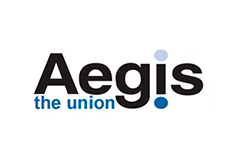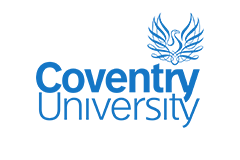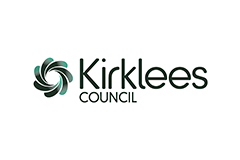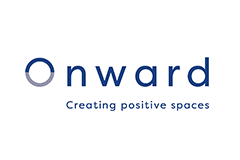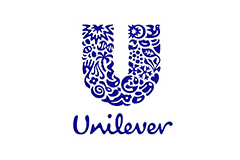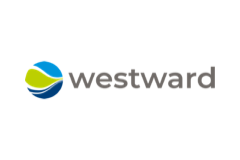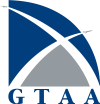
Case Study Toronto Airport

Name of the company for which the work was performed:
Toronto Pearson Airport
Project title:
Provision of Comprehensive Learning Management Solutions
Contact person’s name, title and e-mail address:
Shilpa Williams – LMS Specialist – shilpa.williams@gtaa.com
Start and completion date:
July 2023 – Ongoing
Scope, relevance and scale of contract delivered
Scope
Toronto Pearson Airport, recognized as one of the largest and busiest airports in North America, embarked on a groundbreaking journey to revolutionise its learning management system (LMS) in collaboration with Open eLMS. This partnership was aimed at addressing the fragmented nature of the airport’s learning ecosystem, which was previously scattered across multiple platforms, including various systems for online learning, booking workshops, managing emails, content delivery, compliance, and reporting.
Challenge
Before the intervention, the airport’s learning and development strategy was marred by complexity and inefficiency, with staff and management navigating through a cumbersome array of systems to access learning materials, book training, and manage compliance. This not only hampered the user experience but also affected the overall efficacy of the learning process.
Solution
Open eLMS provided a comprehensive overhaul of the airport’s LMS, introducing a single, unified platform that transformed how learning is accessed, experienced, and managed. This solution marked the first phase of a multi-tiered strategy to rejuvenate the airport’s approach to learning and development.
Key Features of the Open eLMS Solution:
- Unified Learning Interface: A modern, fresh learner interface that consolidates all learning content, booking for training, and feedback mechanisms in one place.
- System Integration: Seamlessly synced with essential internal systems such as MYHR, Outlook and Power BI, significantly simplifying the reporting processes and ensuring real-time data flow.
- Comprehensive Learning Catalogue: An extensive catalogue of learning content designed to support the developmental needs of the airport’s diverse workforce.
- Feedback and Compliance Tracking: An intuitive feedback system alongside robust compliance tracking capabilities ensured that the LMS not only met but exceeded the regulatory and organisational learning requirements.
Impact
The implementation of Open eLMS at Toronto Pearson Airport has been met with unprecedented positive feedback, setting a new benchmark for LMS integration within large, complex organisations. Users praised the system’s multifunctionality and its transformative impact on workplace learning and compliance tracking. The convenience of having a single access point for all learning-related activities was highlighted as a game-changer.
Relevance
The transformative project undertaken by Toronto Pearson Airport in collaboration with Open eLMS serves as a compelling case study for any organisation, regardless of size or complexity, looking to implement a comprehensive and engaging Learning Management System (LMS). This initiative underscores the adaptability and effectiveness of Open eLMS in navigating the intricacies of a highly complex operational environment and delivering a solution that not only meets but exceeds expectations.
Key Takeaways for Organisations:
- Adaptability: Open eLMS’s ability to provide a tailored solution that consolidates disparate learning systems into a cohesive platform showcases its adaptability to the unique needs of any organisation.
- Integration Capabilities: The seamless integration with internal systems such as MYHR, Outlook and Power BI demonstrates the LMS’s capacity to work harmoniously within an organisation’s existing digital ecosystem, thereby enhancing efficiency and reducing operational friction.
- User Engagement: The modern, intuitive interface and comprehensive learning catalogue of Open eLMS emphasise the importance of user engagement and accessibility, crucial elements for fostering a positive learning culture within an organisation.
- Strategic Partnership: Open eLMS’s approach goes beyond mere implementation; it works as an integral part of the team, ensuring that the LMS is not only implemented but also embraced by all levels of the organisation to yield the best possible outcomes.
Scale
The implementation of Open eLMS at Toronto Pearson Airport represents a significant achievement in terms of scale, effectively reaching every employee within the organisation. This encompasses multiple thousands of individuals across various departments and functions, highlighting the system’s capacity to deliver comprehensive learning solutions on a large scale.
Expansive Coverage
The initial phase of Open eLMS’s integration successfully established a unified learning platform accessible to the entire workforce of Toronto Pearson Airport. This inclusivity ensures that every employee, regardless of their role or department, has equal access to essential learning resources, training sessions, and compliance materials. By achieving this level of coverage, Open eLMS has demonstrated its ability to handle the complexities and scale of a major international airport’s operational demands.
Extension to Contractors
The next phase of the project is set to broaden this reach even further by introducing Open eLMS to all contractors working at the airport. This expansion is a testament to the system’s scalability and flexibility, aiming to encompass a wider spectrum of the airport’s operational ecosystem. By extending the LMS to include contractors, Toronto Pearson Airport is not just enhancing the learning experience for its direct employees but is also ensuring that the entire workforce, including those employed by external parties, is aligned with the airport’s standards, procedures, and values.
Strategic Impact
The scale at which Open eLMS operates, reaching thousands and soon to include external contractors, underscores the strategic importance of a well-integrated LMS in large, complex organisations. This expansion aligns with the airport’s commitment to safety, efficiency, and continuous improvement, ensuring that every individual connected to its operations is equipped with the knowledge and skills necessary to contribute to the airport’s success.
Ability to deliver in line with the specification
The collaboration between Toronto Pearson Airport and Open eLMS epitomises the potential of modern LMS solutions to unify and enhance learning experiences in complex organisational environments. The success of this project not only demonstrates the capabilities of Open eLMS but also sets a precedent for the future of learning management systems in large-scale operations. While the majority of LMS providers talk a good game, Open eLMS demonstrably walks the walk when it comes to implementing a learning system that truly transforms the culture of how people can learn in highly complex environments. As Toronto Pearson Airport continues to expand its LMS capabilities with the upcoming introduction of Open eLMS AI and the extension to contractors, it paves the way for a new standard in organisational learning and development, where the focus is not just on compliance and content delivery but on fostering a culture of continuous improvement and engagement.
Reporting
One of the standout features of Open eLMS, particularly evident in its deployment at Toronto Pearson Airport, is the capability for customised reporting. This functionality has revolutionised the way the airport manages and utilises data, providing comprehensive insights that drive informed decision-making and strategic planning.
Tailored Data Analysis
Open eLMS enables the creation of customised reports, allowing for a deep dive into specific data sets tailored to the unique requirements of different departments or teams within the airport. This flexibility ensures that stakeholders can access relevant and actionable insights, from tracking compliance and learning progress to evaluating the effectiveness of training programs.
Comprehensive Data Sets
The comprehensive nature of data reporting through Open eLMS encompasses a wide range of metrics, including learner engagement, course completion rates, performance analytics, and feedback scores. This wealth of information provides a holistic view of the learning environment, highlighting areas of success and opportunities for improvement.
Streamlined Reporting Processes
Integration with internal systems like Outlook and Power BI further streamlines the reporting process, automating data collection and analysis. This seamless integration not only saves time but also enhances the accuracy and reliability of the reports, providing a solid foundation for data-driven decisions.
Impact on Strategic Decisions
The custom reporting capabilities of Open eLMS have had a significant impact on strategic decision-making at Toronto Pearson Airport. By offering detailed insights into the effectiveness of training initiatives, the system supports continuous improvement in learning programs. Decision-makers can identify trends, adjust strategies, and allocate resources more effectively, ensuring that the workforce is always equipped with the skills and knowledge needed to meet the airport’s operational goals.
Ability to deliver in line with the agreed outcomes
Open eLMS delivered the customisations during the 9 months development cycle and within the agreed launch date. The delivered product met all stipulations by the client in the RTM and was delivered on time for a successful launch. The system met expectations against a number of metrics covering performance, usability and accessibility.
Performance
Performance measures look at the time it takes to respond to requests, such as loading a page or completing an action. During the reporting period, the LMS had an average response time of 2 seconds, indicating that the system was able to respond quickly and efficiently to user requests.
These responses are separated into different tests under different loading conditions, metrics were provided by PageSpeed Insights:
| Condition | Description | Desktop Perf Score (<90) | Mobile Perf Score (<50) |
| Manager | Standard management dashboard | 91 | 75 |
| Administrator | Administrator’s management dashboard | 92 | 59 |
| Quality Assurer | Quality Assurer’s management dashboard | 93 | 76 |
The Performance score is a weighted average of the metric scores. Naturally, more heavily weighted metrics have a bigger effect on your overall Performance score. The data used for this test is the standard test data consisting of 1870 users, 15,660 learning records.
| Audit | Weight |
| First Contentful Paint | 10% |
| Speed Index | 10% |
| Largest Contentful Paint | 25% |
| Total Blocking Time | 30% |
| Cumulative Layout Shift | 25% |
The metrics scores and the perf score are coloured according to these ranges:
- 0 to 49 (red): Poor
- 50 to 89 (orange): Needs Improvement
- 90 to 100 (green): Good
To provide a good user experience, sites should strive to have a good score (90-100). All metrics for the Desktop are in the ‘green zone’ – above 90 – and meet this level. Mobile optimization is – as expected – below the desktop score but is in the orange zone, indicating adequate performance which needs improvement.
Open eLMS SaaS application optimises for mobile use of end users for viewing the eLearning content only. Open eLMS is not optimised for performing administrative tasks on mobile devices.
Usability
This metric measures the ease of use of the LMS, including the user interface and navigation, as well as the accessibility of learning materials for users with different abilities.
The user satisfaction survey was made available to measure satisfaction on a 5-point Likert scale via the system. Questions used in this survey address to learners and managers:
Learner survey:
- How satisfied are you with the overall functionality of the LMS?
- How easy is it to navigate the LMS?
- How easy is it to find the courses you are interested in?
- How satisfied are you with the course content and materials?
- How satisfied are you with the communication tools (e.g., forums, email, chat) in the LMS?
- How satisfied are you with the assessment tools (e.g., quizzes, exams) in the LMS?
- How easy is it to enrol in courses in the LMS?
- How satisfied are you with the overall design and aesthetics of the LMS?
- How likely are you to recommend the LMS to others?
Management survey:
- How satisfied are you with the overall functionality of the LMS?
- How easy is it to navigate the LMS?
- How easy is it to assign learning resources to your employees?
- How satisfied are you with the course content and materials?
- How satisfied are you with the communication tools (e.g., forums, email, chat) in the LMS?
- How satisfied are you with the reporting from the LMS?
- How easy is it to set up learning events (webinars, face to face sessions etc.) in the LMS?
- How satisfied are you with the overall design and aesthetics of the LMS?
- How likely are you to recommend the LMS to others?
To date the results from these surveys have not been made available to Open eLMS, although anecdotal evidence has shown the system to have been very well received. When results come in, an average score of over 3 will be considered a pass for this test.
Accessibility
Accessibility i.e., W3C is a core ergonomics principle Open eLMS adheres to an internal accessibility audit and is supplied in line with these principles using the Axe accessibility checker. The audit is biannual and addresses any issues concerning WCAG 2.1 at conformance level AA. A copy of this successful audit run in February 2024 was made available to GTAA.
Security
A vulnerability audit was conducted via defence.com and passed. This audit is carried out monthly, the latest successful test was made available upon delivery with zero risks found in the system.
Overall performance against KPI or service levels during operation
Open eLMS delivers its KPIs under the supplied Quality Level Metrics document which specifies the service levels against which it will maintain and operate the Open eLMS system. These metrics have been tracked since March 2024 and are available via a Power BI dashboard.
To date Open eLMS have resolved all issues raised by the client, the high number of issues during launch has been a result of the high number of customisations to the system, with an additional 6 change requests during delivery. Many of these issues were as a result of clarifying new functionality. No support satisfaction feedback has been received to date.

Open eLMS has resolved all outstanding issues and met SLA targets for first response and delivery 100% of the time.
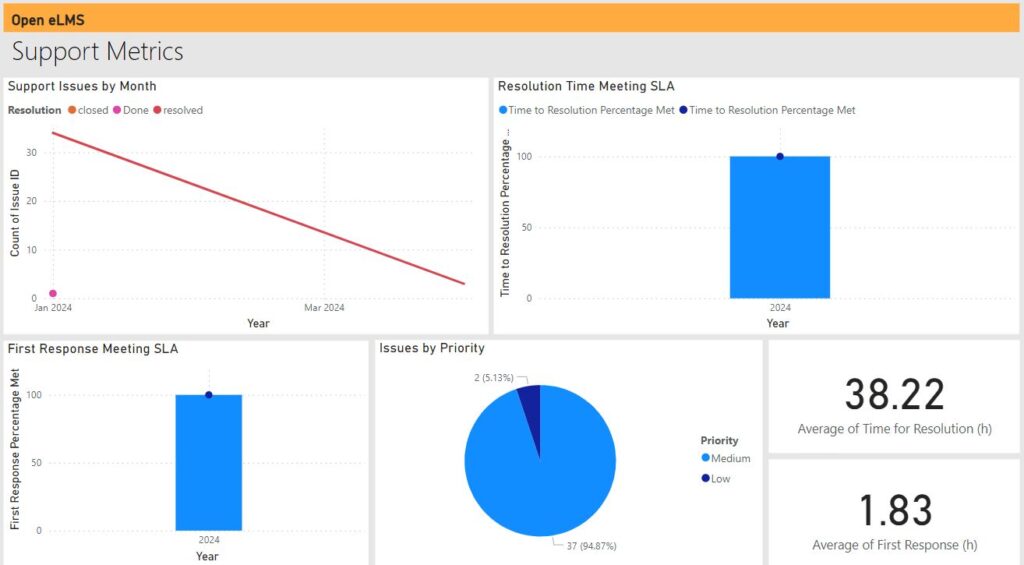
The average response time was under two hours (supporting from 8am to 7pm EST), whilst issues were resolved on average after 38 hours (including non-work times).
Accuracy of information and service provided
The server was up 100% of the time, above the 99.99% SLA level required for the contract.
Communication with stakeholders
Open eLMS has weekly catch up meetings with Toronto Pearson, as the client has continually added functionality to the system, this has been a necessary part of the relationship and is far more than average.
In addition to this there are regular conversations with the client’s main point of contact and the assigned account manager via email and phone at least once a week.
Added / Social value or innovation delivered
The introduction of Open eLMS at Toronto Pearson Airport goes beyond the conventional boundaries of a learning management system by delivering significant added value and innovation that benefits not just the airport’s workforce but the broader community it serves. This aspect of the project underscores the potential for LMS platforms to contribute to social value and drive innovation within an organisational ecosystem.
Enhancing Workforce Capabilities
Open eLMS has played a pivotal role in elevating the skill sets and capabilities of the airport’s workforce. By providing access to a diverse range of learning resources and training opportunities, the system empowers employees to pursue personal and professional development. This not only benefits the individuals by broadening their skills and career prospects but also enhances the overall operational efficiency and service quality of the airport.
Fostering a Learning Culture
The successful implementation of Open eLMS has fostered a culture of continuous learning and improvement among the airport staff and contractors. This cultural shift has a ripple effect, enhancing employee engagement, satisfaction, and retention. It also positions the airport as a forward-thinking and employee-centric organisation, which can attract top talent and improve its public perception.
Community Engagement and Development
By extending the LMS to include contractors and planning to monetize courses for external organisations, Toronto Pearson Airport is leveraging Open eLMS to contribute to community engagement and development. This initiative not only provides valuable learning opportunities to a broader audience but also establishes the airport as a hub of knowledge and skill development, benefiting the wider community and industry.
Innovation in Learning and Development
The planned introduction of Open eLMS AI for creating eLearning content from internal documents represents a significant innovation in learning and development. This feature harnesses the power of artificial intelligence to simplify and enhance the content creation process, making learning more accessible, engaging, and relevant to the needs of the airport’s workforce. It also opens new avenues for the airport to share its knowledge and expertise with external entities, creating potential revenue streams and furthering its contribution to the industry and community.
Ability to improve the environmental impact of delivering services / goods / works
The deployment of Open eLMS at Toronto Pearson Airport not only marks a significant leap in learning management and operational efficiency but also aligns with environmental sustainability goals. The system’s innovative approach to learning and development has indirect yet impactful benefits on the environmental aspects of delivering services, goods, and works.
Reducing Carbon Footprint
By centralising and digitising learning resources, Open eLMS reduces the need for physical materials, such as paper-based manuals and documents, thereby lowering the environmental footprint associated with traditional learning methods. Furthermore, the system’s support for remote learning and online workshops minimises travel requirements for training purposes, directly contributing to a reduction in carbon emissions.
Enhancing Operational Efficiency
The improved skill set and efficiency of the workforce, facilitated by Open eLMS, translate into more environmentally friendly operational practices. Employees equipped with the latest knowledge and best practices are better positioned to implement sustainable methods in their daily tasks and decision-making processes, leading to more eco-friendly outcomes in service delivery, goods handling, and groundworks execution.
Supporting Sustainable Development Goals
Through its comprehensive reach and the incorporation of sustainable learning content, Open eLMS plays a role in advancing the airport’s commitment to the United Nations Sustainable Development Goals (SDGs). The platform enables the dissemination of knowledge on environmental sustainability, encouraging employees and contractors to adopt practices that contribute to the airport’s broader sustainability objectives.
